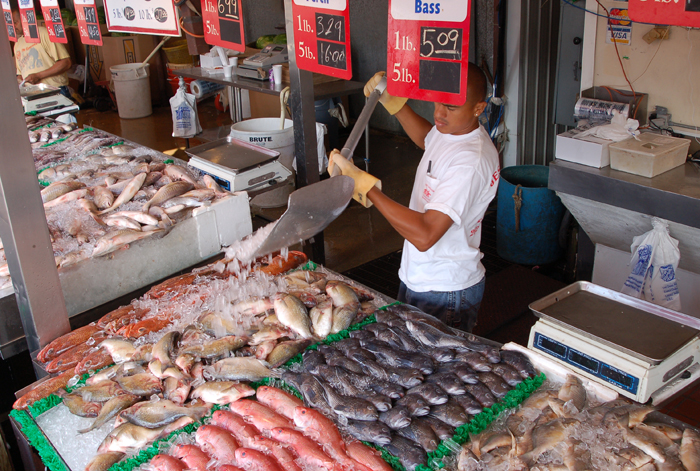
America’s fisheries drive coastal economies and put food on the tables of families across the country. Unfortunately, the twin global issues of illegal, unreported, and unregulated (IUU) fishing and seafood fraud undermine the economic and environmental sustainability of fisheries and fish stocks.
Global losses attributable to IUU fishing are estimated at $10 billion to $23 billion annually. Pirate fishing vessels take in fish without regard to the sustainability of ocean ecosystems. Not required to file trip plans or carry transponders, the ships roam the oceans in the shadows and become vectors for human, drug, and arms trafficking. Black-market fishing distorts legal markets and displaces law-abiding fishermen, ultimately serving as a drag on the global economy. These challenges can be compounded by seafood fraud — the mislabeling, misbranding, or falsification of product origins — which can occur at any point in the supply chain.
Today, the federal task force on combatting IUU fishing and seafood fraud released its final recommendations to tackle these complex challenges. President Obama announced the creation of the task force at the State Department’s Our Ocean conference in June, and for the last six months, under the leadership of NOAA Administrator Kathy Sullivan and Under Secretary of State Cathy Novelli, representatives from 14 agencies have come together to answer the President’s call to action.
The 15 recommendations being released by the task force today will:
- Combat IUU fishing and seafood fraud at the international level by directing agencies to identify specific diplomatic, development assistance, and trade-related actions
- Strengthen enforcement and enhance enforcement tools to combat IUU fishing and seafood fraud by improving resource and information sharing and supporting risk-based targeting of illicit seafood shipments
- Create and expand partnerships with state and local governments, industry, and non-governmental organizations to identify and eliminate seafood fraud and IUU seafood in U.S. commerce
- Create a risk-based traceability program to track seafood from harvest to entry into the U.S. commerce to prevent entry of illegal product into the supply chain and better inform retailers and consumers.
These recommendations represent the culmination of the task force’s deliberations and input from a robust public consultation process, but further comments will be requested to create an implementation plan. To that end, we will open a 30-day public comment period via the Federal Register to give an opportunity for all interested stakeholders to help us strengthen the implementation of these important recommendations.
In developing these recommendations, the Task Force recognized the need to level the playing field for legitimate fisherman and businesses in the seafood industry. This sort of action also supports sustainability in our global fisheries and increasing already high consumer confidence in the sustainability of seafood sold in the U.S. The recommendations also provide a benchmark for other nations to follow in achieving these same goals.
Responsible fishery management — grounded in strong science and reinforced by strong partnerships between the fishing, conservation, and science communities — is crucial for the economic health of fishing communities and the country as a whole. In 2012, the seafood industry generated $141 billion in sales, $39 billion in income, and supported 1.3 million jobs. In the same year, the recreational fishing industry generated $58 billion in sales and supported nearly 400,000 jobs.
Over the last six years, the United States has made enormous progress in ensuring these fisheries will continue to be productive for years to come by largely ending overfishing in domestic waters and rebuilding a record number of depleted stocks. The President’s National Ocean Policy has helped establish the U.S. as a global leader in sustainable seafood and effective management of our ocean resources, and effective management and enforcement have supported near-record highs in landings and revenue for our domestic fishing industry.
By taking on black-market fishing and seafood fraud, the Obama administration hopes to further support progress toward building sustainable fisheries and to ensure that U.S. fishing fleets remain competitive in the global economy.


